#portugal 1807
Text
Letter from Napoleon to Junot, December 1807
Milan, 23 December 1807.
I have received your letters of 6 and 7 December. An aide-de-camp to the viceroy, who left two days ago, is bringing you letters from me. I am pleased to see that my troops have occupied Peniche; but you do not tell me whether the fortress of Almeida and the other fortresses in the kingdom are occupied by my troops. I do not need to tell you again how urgent it is for you to take them, and for there to be a French commander and garrison in all these places.
I think that the course you are following is not a good one, because it is not far-sighted. You are acting like men who have no experience of conquests, you are deluding yourselves with vain illusions: all the people in front of you are your enemies. As soon as the sea is tenable, you will have the English on your coasts and intrigues in your provinces. Then all the resources you have left to the Portuguese will turn against you, for the Portuguese nation is brave.
I therefore reiterate that my positive intention is that,
1° the country be occupied by my troops ;
2° the country be disarmed;
3° all Portuguese troops be directed to France, in columns of 800 men, after removing everything that is out of service; it is not that I wish to have many of these men, but I wish to rid the country of them;
4° all the princes, ministers and other men who can serve as rallying points should be sent to France.
I regret to see that you have put the first division into Lisbon. Your reserves are sufficient to guard the forts. All the troops must be camped out in squares and be available at the first event. You have your second division, which is the worst, camped out; it should be just the opposite. It is not enough to have troops to launch a few marches from Lisbon, but they must be available to go anywhere without being noticed.
That's the advantage of camps.
[…] I repeat, do not keep any Portuguese troops. The legion of police, for policing the city, is far too strong; but you can mix in a few French men to find out what is going on. All the cannons and rifles must be removed, whether from the arsenals or from elsewhere where they would be available to the people.
[...]
There is no doubt that you must confiscate all English goods whatever they may be. Everything is easier in the first moment than afterwards. Do not seek popularity in Lisbon, nor the means to please the country; that would be to miss your goal, to embolden the people and to prepare for misfortune. At the moment it is impossible to do anything for them that would be equivalent to the state of tranquillity and trade in which they were; they will complain, but above all your army must lack nothing.
[...] I assume that my troops have field supplies in Lisbon and are very well fed. It is your first duty not to let them lack anything. I would like you to be able to pay the salary and supplies of the 2nd Corps of the Gironde, which has been ordered to come to Valladolid in order to be in a position to support you.
The large number of troops that I am obliged to raise makes my expenses enormous. I have set the extraordinary contribution at one hundred million; all the towns must pay according to their means, and with that you will not lack what is necessary; but, I repeat to you, the Portuguese troops must be sent back and the country must be disarmed. [...]
This letter was written rather shortly after French troops had occupied Portugal, and in many aspects it reminds me of the instructions Napoleon would send to Murat once Murat had occupied Madrid a couple of months later.
I can’t help but wonder what the recipients were thinking on receiving them. Had they already known what was going on? Were they in on Napoleon’s plans? Had they, when they set out on their journey, fully understood that this in truth was nothing but a scheme to occupy two countries that had not taken action against France in any way?
Considering how often Napoleon has to reiterate the same things to them (Don’t occupy yourself with the well-being of the people, get your hands on anyone and anything that might become dangerous, be brutal, etc.), my gut feeling is no. So I wonder, how do you react when you figure out that the person you’ve always admired like noone else, whose friendship you’ve treasured, starts acting like a scoundrel?
Or did they agree with Napoleon’s plans? And if the two men who were executing them only learned about their full scope once they were in the midst of it all and had no means to protest – who were the people Napoleon had concocted these plans with?
18 notes
·
View notes
Text

LA NOVELA "EL REY PRÓFUGO DE PORTUGAL, 1808" (EDICIONES DE LA PAZ, 2023) SE PRESENTÓ EL DÍA 24 DE ABRIL 2023 EN EL CONSULADO ARGENTINO DE URUGUAYANA, RGS, BRASIL.
#Rey Profugo#Portugal 1807#Invasion napoleonica a Portugal 1807#Joao VI huye de Lisboa#Alejandro Bovino Maciel#Novela de ficcion historica
0 notes
Text
I watched Napoleon (2023) yesterday and it's... pretty bad
#the battle scenes were cool tho#but no mention of Thomas Dumas and the invasions of Spain/Portugal made me lowkey mad#THEY SHOWED JUNOT BUT WON'T TALK ABOUT HIS TAKING OF PORTUGAL#Spanish insurgence who#Wellington just pops up at the end for Waterloo and fuck you that's it#poor Nelson was just straight up never mentioned#It goes from 1807 to 1812 with a TITLE CARD hahaha wtf#napoleon 2023 spoilers#i guess#idk anymore#they showed him shooting the pyramids and breathing heavily over a mummy lol wtf was this movie
16 notes
·
View notes
Text

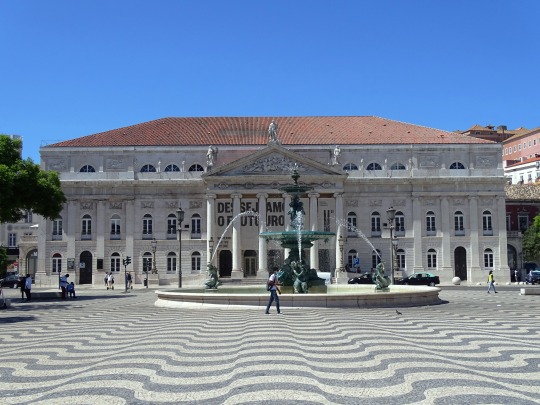
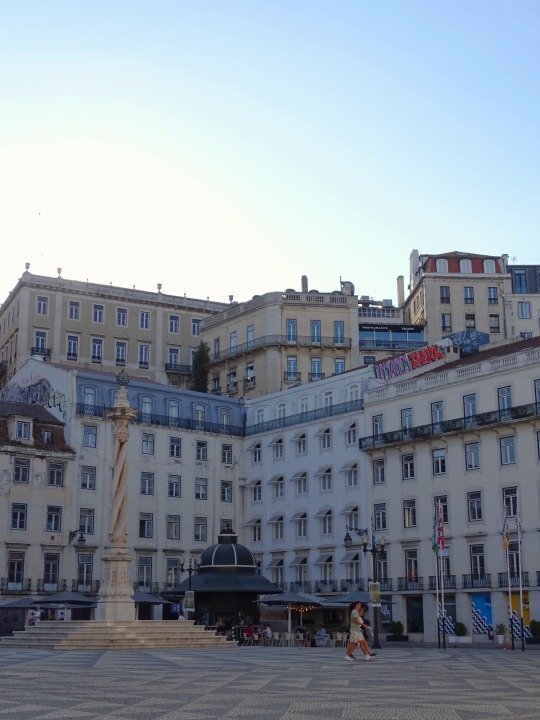
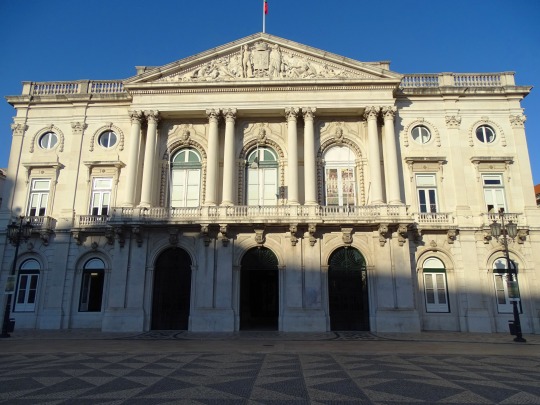


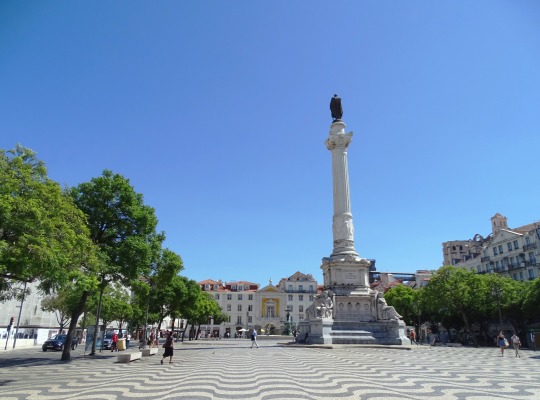
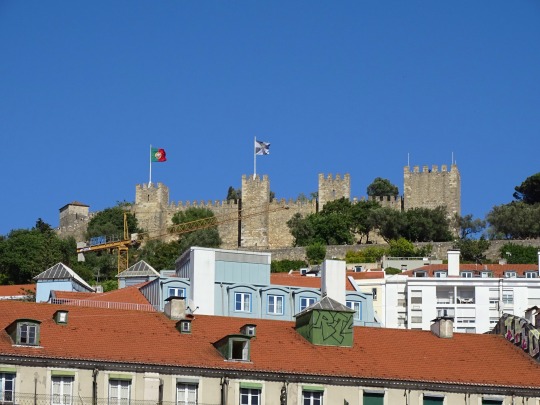

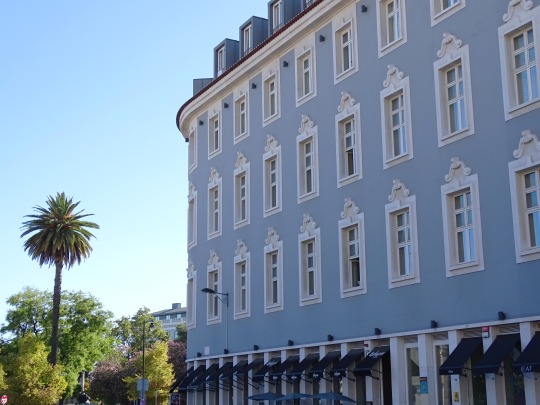

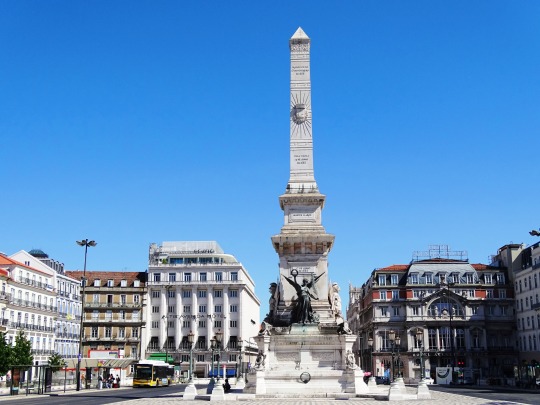


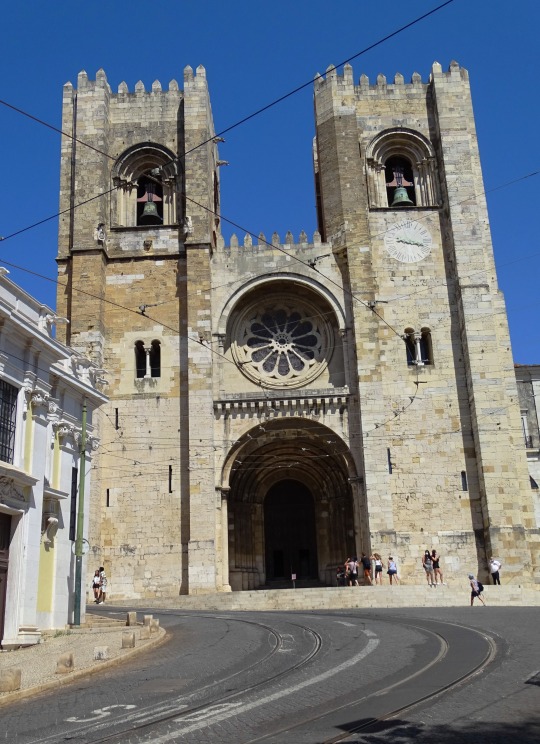

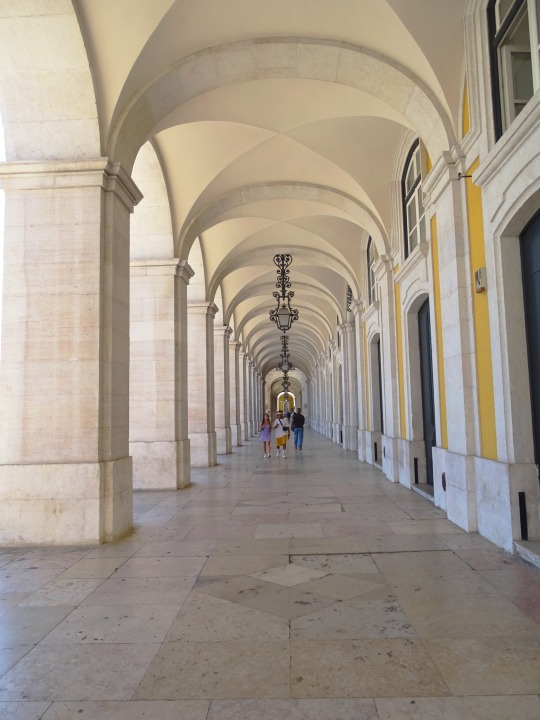

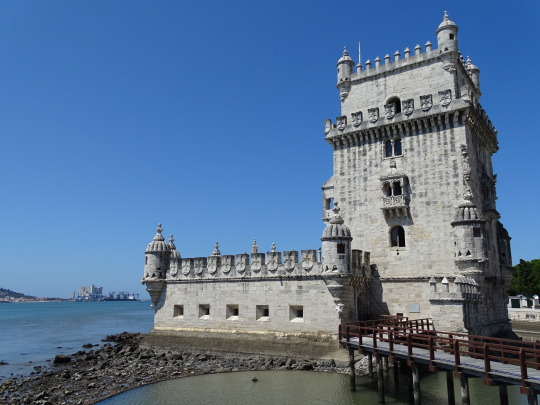

Jean-Andoche Junot's French army entered Lisbon on the November 30, 1807, whereupon the Portuguese royal family departed for Brazil where they would remain until 1821.
#Praça do Comércio#Jean-Andoche Junot#entered#Lisbon#Lisboa#travel#30 November 1807#anniversary#Portuguese history#Portugal#vacation#original photography#summer 2021#architecture#cityscape#Praça do Município#Rossio Square#Belém Tower#São Jorge Castle#Lisbon Cathedral#tourist attraction#landmark#Southern Europe
8 notes
·
View notes
Photo

Napoleon's Spanish War
“Atlas histórico de España”, Enrique Martínez Ruiz, Consuelo Maqueda Abreu, Emilio de Diego, Ediciones Istmo, 2016
by cartesdhistoire
For Napoleon, the Iberian Peninsula was a weak link in the southern flank of the continental blockade. In 1807, he sent Junot to occupy Portugal, where smuggling of British products was developing on a large scale. The presence of French garrisons on Spanish territory exacerbated the dynastic crisis which undermined power, torn between King Charles IV, Prime Minister Godoy and Infante Ferdinand. Napoleon deposes the Bourbons, exiled in France and replaced by Joseph Bonaparte. A popular riot broke out in Madrid on May 2, 1808, followed by fierce repression on the 3rd. The country was set ablaze, resistance was organized by politico-military juntas. French troops were defeated at Bailén, in Andalusia, in July 1808. Napoleon had to strip the eastern front to undertake costly reconquest operations.
In the years that followed, Spain became a gigantic battlefield. Spanish resistance is composite; a strong Catholic component gave the conflict the appearance of a crusade, while the politicians were divided between dynastic loyalty to the “legitimate” king, Ferdinand VII, and liberal aspirations which were expressed in the Constitution of Cádiz of 1812. The supporters of “Intruder king”, the “josefinos”, are isolated and only provide a semblance of authority under the cover of powerful military governors, Soult in the south, Suchet in the north. The French and their allies know how to play on the divisions of their adversaries, the liberals wary of the bands of partisans often supervised by priests and fanatically devoted to Ferdinand, whose absolutist tendencies are a mystery to no one.
It was the English expeditionary force commanded by Lord Wellesley, Duke of Wellington, hostile to the people's war, which ultimately decided the balance of power. In June 1813, the French army was crushed in Vitoria and had to evacuate the peninsula.
56 notes
·
View notes
Text

The Rotunda da Boavista is large traffic circle and iconic landmark in Porto, Portugal. Eight streets meet at its center, which features a decorative garden and a 148-foot (45-m) column that commemorates the victory of the Portuguese during the Peninsular War (1807–1814). Also visible in this Overview is Cemitério de Agramonte and Casa da Música.
41.157573°, -8.629092°
Source imagery: Maxar
164 notes
·
View notes
Photo
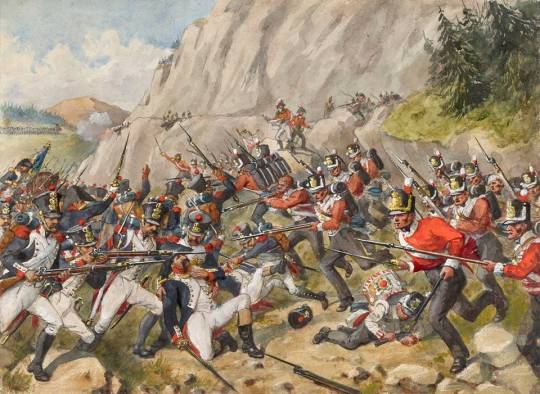
Peninsular War
The Peninsular War (1807-1814), also known as the War of Spanish Independence, was a major conflict of the Napoleonic Wars (1803-1815) that was waged in the Iberian Peninsula by Portugal, Spain, and the United Kingdom against the invading First French Empire of Napoleon I (r. 1804-1814; 1815). It remains the bloodiest episode in the modern history of Spain.
Continue reading...
37 notes
·
View notes
Note
just realized that denmark and england have so much in common
they really do! their flags are basically inverse of each other and their coat of arms are both three lions with the colors yellow, red, and blue.



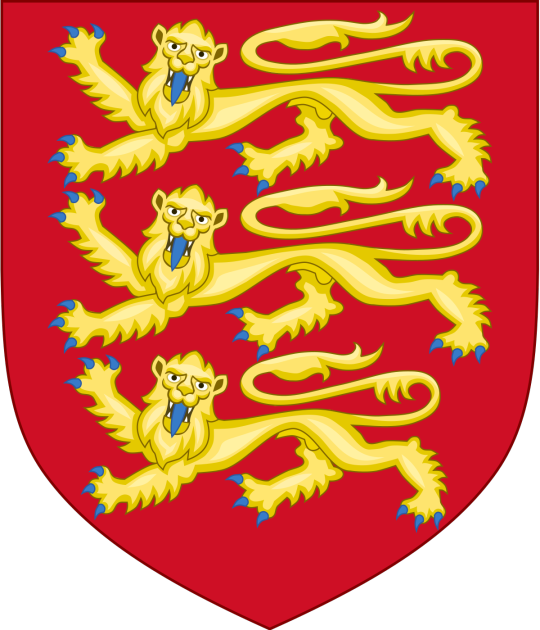
superficial similarities aside, it may seem like a crack ship on the surface but they have not only similar history but also intertwining history. similarities:
both are seafaring cultures and naval powers (well, formerly)
both have a legendary history of piracy
both are formerly-powerful empires
Protestant countries who told the pope to fuck off
their climate and geography is very similar
personal unions with their neighbors
both have a legendary rivalry with their neighbor across a narrow strait
they have a surprising amount of shared history, too, which I'm going to go on for entirely too long about:
Viking Age settlements, of course, and everything that comes with that such as Varangian Guard etc.
North Sea Empire babeeeyyyy
FUCK William the Bastard, man. Sweyn II of Denmark even sponsored some raids and rebellions against William.
the Danish kings continued to insist they had a claim to the English throne as late as 1206. no one, particularly the Normans, cared what the Danes thought but it's the thought that counts.
England, and later Britain, had a very vested interest in not letting any one country control the Sound (ie the strait between Denmark and Sweden) which meant occasionally boosting Sweden's power in post-war negotiations (RIP Skåne, Halland and Blekinge) but more often meant telling Sweden that an invasion of Denmark would mean war with England.
England occasionally showing up out of nowhere to bombard Copenhagen during Denmark's wars with Sweden because the Netherlands asked them to or something.
throughout some of the 17th century and I think a majority of the 18th century they actually had an alliance via royal marriage or treaty. ftr France did not like this.
poor Anne of Denmark. she gets married to the Scottish King James VI and none of the Scots like her because she's a foreign queen. then James inherits England after the death of Queen Elizabeth, meaning Anne is a foreign x2. apparently she managed pretty well for herself though.
(ftr, my headcanon is that it's during one of Christian IV's visits to see his sister Anne that Arthur introduces Mathias to his new kid, who he named after the king that prevented the Danes from conquering England. Mathias is not sure how to feel about this. Arthur doesn't mean anything by it, he's just in full 'LOOK AT MY FAT BABY' mode.)
POOR CAROLINE MATILDA OF BRITAIN. the Danes were willing to be chill about it and let it go but the Brits were just really fucking mad about it for some reason.
Caroline Matilda of Britain's divorce to Christian VII of Denmark was formalized in 1772, which resulted in the breaking of the alliance and a lot of resentment from the Danish side. this would come back to bite Britain hard when the American Revolution breaks out and suddenly Denmark is under no obligation to do shit for Britain. lol. lmao, even.
actually, the First League of Armed Neutrality (Denmark-Norway, Russia, Sweden and Finland, Prussia, Austria, Portugal etc) isn't really Denmark getting revenge for the Caroline Matilda affair so much as Russia strong-arming Denmark-Norway into it and the Brits pretending to be chill about it.
the Brits stopped pretending to be chill about it come 1800, at which point the Royal Navy showed up in the Sound to, uh, convince Denmark-Norway to not ally with France. very fortunate for Denmark-Norway that the tsar of Russia just so happen to conveniently get assassinated right then, releasing them from their obligation to the First League of Armed Neutrality.
this did not stop the Brits from freaking out again about it in 1801 and showing up out of nowhere to bombard Copenhagen.
and in 1807, the Brits freak out about the possibility of Napoleon pressuring Denmark-Norway into an alliance again, prompting the Royal Navy to show up out of nowhere and, yet again, bombard Copenhagen. this time, though, they seize the entire Danish fleet. RIP Denmark's tenure as a naval power, you will be sorely missed.
in 1810, Sweden really wants to kick Denmark's ass and hopefully abscond with Norway, so they join Britain's anti-Napoleon alliance (as Denmark-Norway had consequently joined Napoleon after the Brits, you know, stole their navy). and Sweden does, in fact, end up able to get Denmark to cede Norway in 1814; unfortunately for them, Norway says 'no thank you' and declares independence instead. at this point, Sweden invades Norway and would really love to invade Denmark but Britain is in the background repeatedly making the throat-slitting gesture again.
Britain: sorry for annihilating Copenhagen and taking your fleet in your and Norway's divorce, would you feel better if we vouch for you at the Congress of Vienna? you can have Swedish Pomerania and the duchy of Laeunburg or something.
Denmark: can't we have Norway back??
Britain: lol. lmao even. oh btw thanks for the Beowulf manuscript! 🫶
and the Danes continued to be mad about it for the next hundred years.
despite this, Britain supports Denmark during the First Schleswig War during the post-war negotiations (hosted in London) to make sure Denmark keeps Schleswig-Holstein.
the Second Schleswig War (Austria & Prussia vs. Denmark; 1864) is really interesting because Britain really, really, really wants to militarily support Denmark again, but this annoying little thing called the 'American Civil War' is happening at the same time, which leaves the Brits' hands a bit tied and their army stuck in Canada to defend the border. sorry Denmark. Denmark gets their ass beaten so hard they decide to become pacifist forever. Britain thinks this kinda sucks but can't do anything about it.
Denmark is nominally neutral in the world wars, but in reality makes several hostile moves against Britain due to German pressure. the Brits are surprisingly forgiving about this, esp in WW1, where they just look the other way from the fact that Denmark put a bunch of naval mines in the Sound to impede the Royal Navy.
WW2 is really interesting again, because from the outbreak of war, the Brits write Denmark off as an ally on the assumption they'd back Germany, whether formally or informally. so Denmark's cooperation with the Nazis doesn't really upset the Brits. in fairness, Denmark is very chill about the UK invading the Faroe Islands and Iceland.
the Brits are a little more bothered by the formal Nazi occupation/direct military control of Denmark, and it takes Danish partisans repeated attempts to convince the Brits to take them seriously as a trustworthy ally against the Nazis, at which point the RAF launches Operation Carthage to... once again bombard Copenhagen. this time on behalf of the Danes though.
also, the Danish partisans actually play a pivotal role in D-Day, where they successfully disrupt the railway system long enough to delay the Germans from reinforcing Normandy. very cool!
in any case, guess which one of the Allied Powers is the one to accept the unconditional surrender of the German forces in the Netherlands, northwest Germany, and Denmark? t'would indeed be the Brits! after WW2, the UK used their sway with Denmark to convince them and Norway to join NATO. since then, the US lowkey defers to the UK when it comes to Denmark in NATO matters, and the UK is the main regional coordinator.
Denmark is not particularly thrilled when the UK leaves the EU, because the UK generally had similar economic policies but a lot more political sway against France and Germany. alas.
oh also, just last year they finished construction of the Viking Link, which runs from Lincolnshire to Jutland. so that's neat.
see! they do have more history than you'd expect! not sure wtf was happening during the entire High-Late Middle Ages but shhhh. overall, imo England/Britain's history parallels Denmark's, with one having a lot more success in the international arena than the other. offers a lot of good headcanon/writing fodder.
#ask#anon#history tag#hws england#hws denmark#north sea lovers#deneng#I didn't proofedit this at all#long post
17 notes
·
View notes
Text
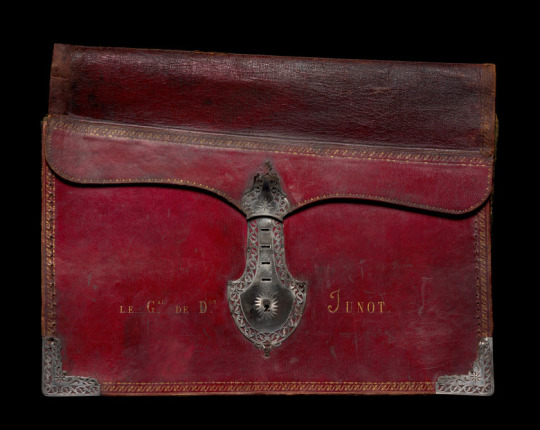
LARGE PORTFOLIO OF GENERAL JUNOT, DUC D'ABRANTÈS, CONSULATE PERIOD (1801-1804)
In red morocco leather decorated with gold with a small iron, signed “Garnesson maison Égalité” under the flap, with five bellows and six dividing compartments inside; marked in gold “LE Gal DE Don JUNOT”; corners of reinforcements with cut sides and openwork plate with five anchor points, in silver; clover key lock.
In the state: (accidents, tears, restorations, missing key).
A large consulate-periode porte document of General Junot, duc d'Abrantès.
Provenance: Andoche JUNOT, Duke of Abrantès (1771-1813), then descendants.
Related work:
A wallet in private collection, marked “A JUNOT COLONEL GENERAL AIDE DE CAMP DE L'EMPEREUR”, which was used by Junot after July 1804.
History:
The existence of another portfolio of Junot allows us to date this one precisely, that is to say after his appointment as division general (November 20, 1801) and before his appointment as colonel general of the hussars in July 1804. Garnesson’s marking “Maison égale” (name of the Palais Royal between 1793 and the Consulate) confirms this dating.
Biography :
Jean Andoche Junot, Duke of Abrantès (1771-1813). Bonaparte’s aide-de-camp, he participated in the Italian and Egyptian campaigns, then was ambassador to Lisbon (1804) and governor general of Parma and Piacenza (1806). Commanding the army of Portugal, he achieved the success of Abrantes, entered Lisbon (November 1807), but, beaten by the English, he had to capitulate at Sintra (1808). He then fought in Spain (1810-1811), then was governor of Illyria (February 1813). He ended his life in 1813.
Source: Artcurial — Historical Memories - 24 january 2024
#Artcurial#auction#junot#jean andoche junot#historical memories#historical memories auction#napoleonic era#napoleonic#portfolio#1800s#19th century#Morocco leather#napoleon bonaparte#napoleon#first french empire#french empire#history#France#french history
14 notes
·
View notes
Text
In Brazil, a Best-Selling Novel Confronts the Brutal Afterlife of Slavery
Crooked Plow made Itamar Vieira Junior an essential voice in Brazilian letters.

On May 13, 1888, Princess Isabel of Bragança, the heir presumptive to the Brazilian throne, signed a “Golden Law” that freed 700,000 people from slavery in Brazil. The country, which had declared independence from Portugal 66 years earlier, had received close to half of all enslaved Africans brought to the New World by European colonizers. Isabel’s formal declaration of abolition came decades after the precedents set by countries such as Great Britain, which outlawed slavery in 1807; facing pressure in the form of port attacks and slave ship seizures by British forces, Brazil’s parliament passed an 1871 law that freed all children born to enslaved parents (though not guaranteed before they reached the age of 21). But this blanket implementation, and even Isabel’s later decree, did little in the way of truly liberating those upon whose bodies the country’s economy had been built. By the dawn of the 19th century, Portuguese colonizers had shaped Brazil via the vast and often violent industries of coffee and gold in the South and sugar in the Northeast. To maintain this infrastructure, landowners conspired to keep enslaved men and women—most of them from West Africa—unfree. After abolition was implemented, the formerly enslaved were still at the mercy of landowners who would grant them permission to live on their property in exchange for free labor, leaving them indebted to their former employers and without much more freedom than what they’d had before.
First published in Brazil in 2018, and recently translated into English by Johnny Lorenz, Itamar Vieira Junior’s Crooked Plow takes place during the transitional years when freed slaves and their descendants sowed and harvested land that they were prevented from owning. Set in the hinterlands of Bahia’s Chapada Diamantina region in the early 20th century, the novel follows three generations of a family caught between the pull to remain in a familiar system of servitude in exchange for stability, and the post-abolition push toward claiming the land they knew—and loved—better than their former masters.
The book’s success in Brazil exemplifies a trend in the country’s literary landscape toward novels told from the perspective of the historically oppressed. In the past five years, Vieira Junior has been an integral member of a group of Brazilian writers who, in depicting racism and slavery through the viewpoint of racial minorities and enslaved peoples, remind us of Brazil’s painful colonial history while returning agency to those who suffered under its one-sided narration. In the wake of the Bolsonaro presidency, which sanctioned the intrusion on Indigenous territories and denied the prevalence of racism in the country, Viera Junior and his cohort’s mission has been particularly remarkable; by reimagining Brazil’s past, these writers are committing themselves to reimagining what Brazil can become.
Continue reading.
#brazil#brazilian politics#politics#antiracism#books#itamar vieira junior#crooked plow#mod nise da silveira#image description in alt
16 notes
·
View notes
Text
Saint-Chamans about Soult and the "roi Nicolas" affair
So I did it. Here is the testimony of the public prosecutor's crown witness against "roi Nicolas Soult" 😁. Taken from Saint-Chamans' memoirs, translated to the best of my and DeepL's abilities. I'm posting this mostly for @cadmusfly but read at your own risk. As I warned before, this is very long, rather convoluted and may be quite boring. Also, of course I could not resist jumping in to defend Soult at several points.
[…] we advanced cheerfully towards the borders of Portugal, not doubting the success of our expedition; Marshal Soult, following the instructions given to him by the Emperor, flooded the country with proclamations, but we soon saw that they had little effect on a fanatical people who were exhorted by their priests to make a stubborn defence; the excesses, theft and bad conduct of the Duke of Abrantès's army during the first expedition had, moreover, stirred up all the Portuguese against the French name.
Saint-Chamans may not always be the sharpest knife in the drawer, but these observations of his are interesting. Napoleon ordering a flood of proclamations hints at an attempt to peacefully win over the population to the French side from the very beginning (an attempt that Soult would, in his mind, continue in Oporto with different means). It is to be noted that Portugal as a whole had already been occupied and for some time administered by Junot from late 1807 to mid-1808. There must have been a francophile party within Portugal.
While I am not much familiar with Junot’s occupation of Portugal and its "excesses" (@snowv88, do you happen to know if Junot's occupation of Portugal was in some way worse than what had happened in other countries before?), and while this may to a large degree just be Saint-Chamans trying to pass the buck by pointing his finger at somebody else, it is true that a whole bunch of generals who had belonged to Junot’s army during the first occupation of Portugal now were under Soult’s command, re-entering a country that already despised them (this would in particular be so for general Loison, nicknamed "Maneta" and hated with a passion by the Portuguese). Moreover, these generals, whom Napoleon had ordered Soult to take with him, now had entered Soult's staff as supernumerary members without specific duties. So not only did Soult have to take over an army corps that he had never commanded before (his own corps had remained in Germany), and men he did not know and who did not know him, but he also had to deal with a large group of bored officers, with lots of time on their hands to feel ignored or badly treated by their new commander-in-chief.
But I’m already digressing. What I wanted to translate was Saint-Chamans’ opinion of Soult’s alleged attempt to make himself king. Here’s another remark on what Soult’s state of mind may have been like, once the French had managed to enter Portugal and become master of at least some parts of the country. Saint-Chamans has just returned from a journey to general Franceschi, and had barely avoided getting killed in attacks by Portuguese peasants several times on the way.
I took care, when I saw Marshal Soult again, not to tell him about all the misfortunes of my last night: I knew that he became seriously angry when anyone tried to give him an idea of the dangers that accompanied the French in this dreadful country, and of the exasperation of the Portuguese against us; he was extremely persistent in his resolutions and in his undertakings, and he was very annoyed with those who tried, either directly or indirectly, to divert him from them and to make him see the disadvantages. He could not, however, conceal them from himself for long, and this knowledge of his dangerous position threw him into false and hazardous political steps, the gist of which has never been properly grasped and which perhaps only he could have fully explained; but I will speak at greater length about this circumstance in a moment, and I will say frankly what I have seen and what I believe.
Which he then does some pages later, after having related the horrible scenes during the capture of Oporto:
Indeed, despite this brilliant victory, our position was very critical; the army of Sir Arthur Wellesley (since so famous under the name of the Duke of Wellington), 30,000 strong and united with the Portuguese army, was in Lisbon and preparing to march on Oporto; they were commanded by the Portuguese General Sylveira and the English General Sir Robert Wilson (the same man who has since been tried in Paris for having helped escape Lavalette). These latter corps were intended to intercept any communication with Spain.
Here, I believe, Saint-Chamans makes a rather dishonest argument, or at least argues in hindsight, because I do not think the French at the time were even aware of the strong British presence in Portugal. They only figured it out when they tried to go south from Oporto.
If Marshal Soult had not been absorbed by ideas of ambition, which dominated all others in him at the time, he would have realised that his position was untenable and that he had only one course of action to take: to regard Oporto as a conquest which he needed to take advantage of to feed his army well for a fortnight and recover from its fatigues; then to retreat with all his forces to the Minho, to seize Valença, a fortified town in Portugal, on this river, opposite Tuy, of which he would have made an excellent bridgehead which would have communicated from one to the other of these last two towns; he would thus have linked up with the corps of Marshal Ney, whose headquarters were in Coruña, and whose troops occupied Tuy and Santiago; in this way, he could have safely evacuated his wounded and sick to good hospitals established in well-closed towns, instead of being obliged to abandon them to the fury of the Portuguese, as he did when he hastily evacuated Oporto; he would have kept all his artillery, lost at the same time; he would make the part of Portugal between the Minho and the Douro his tributary; he would re-establish direct communication with the French army in Spain and France; his own army, which numbered only 24,000 men, would have lived in abundance; he would preserve for the French army the best entrance into Portugal for the time when they would have been in a position to conquer this country, and until then he could wage a war of exploration there [...].
While it is quite possible that this plan, developped by a Saint-Chamans writing some 15 or 20 years after the events, could have proven successful (even if it does assume that Wellesley would just have watched the French gaining a secure foothold in the country and puts a little too much faith into the forces of Ney who barely was able to hold onto Galicia at this point), it was unfortunately not at all in accordance with the orders Soult had received from Napoleon. These orders simply stated that Soult was to march into Portugal from the north, conquer it and seize Lissabon, for which Berthier in his last dispatches deemed Soult’s single corps sufficient. But if he really needed support, he should receive it from Ney (from the north) or Victor (from the east). A retreat however, by giving up an important city that had been conquered, was simply not an option.
And so Soult, sticking to his orders, remained in Oporto and tried to contact the two corps that were supposed to support him: Ney and Victor (by sending Loison east to Amarante, as we will hear). Unfortunately, both of them had their hands full with problems of their own, Ney had lost contact with Madrid himself, Victor never showed up and may not even have fully understood what he was supposed to do, and since by now Joseph in Madrid was in charge, who paid little attention to what was going on in Portugal, Soult was left utterly alone.
Continuing with Saint-Chamans’ account:
[…] But all these considerations were not in harmony with Marshal Soult's plans, and so he did not give them a second thought. No sooner had he established himself in Oporto than he began to unmask his plan; an officer, half-French, half-Portuguese, named Laffitte, a schemer if ever there was one, who had been sent to his staff for the expedition to Portugal, ostensibly as an interpreter, for he spoke Portuguese fairly well, but in reality as a spy, was his main agent with the Portuguese in this circumstance; at Oporto, this wretch discovered a Portuguese priest named Veloso, who was as rich as he was narrow-minded, and who was promised heaven and earth, provided that Marshal Soult became King of Portugal; at the same time, this ignorant priest was persuaded that he was not a bad man, and that all this was for the greater good of his country; he believed it, and this idea, combined with the fine promises made to him, made him one of the Marshal's most zealous supporters; he acted accordingly. He addressed the people in the streets and public squares; he preached in the churches, he spread money to make supporters for the Marshal, and led by the advice of Laffitte, he succeeded in giving this party, in Oporto and the surrounding area, a certain stability; deputations arrived from Braga, Guimaraens, Olivera, and other towns of which we were the masters, and where part of the population had returned to, soliciting the Marshall to ascend the throne of Portugal; registers were opened in the town of Oporto to receive the votes of the inhabitants, the number of which was very considerable, and General Ricard, Marshal Soult's chief of staff, who had been his aide-de-camp, wrote circulars to the divisional generals insinuating the matter, for the Marshal, despite the affection for him of the good inhabitants of his good cities of Oporto and Braga, felt that he could do nothing without the consent and cooperation of the French army.
So, this is the main testimony that modern historians base their accusation on when it comes to Soult and the »roi Nicolas« issue. Admittedly, it is a damning one. Saint-Chamans obviously is convinced that Soult really wanted to seize the crown and was intriguing on his own behalf, and his testimony carries particular weight, as, being Soult’s aide-de-camp, having his marshal’s trust and being in his inner circle, Saint-Chamans was in a position to witness everything that was going on in Oporto at close quarters …
While all this intrigue was going on, I was on a mission twelve leagues from Oporto near generals Loison and Delaborde […]
Oh. Or maybe he wasn’t.
So, what Saint-Chamans relates above is not something he has witnessed himself, it is what he has heard during the time he spent with generals Loison and Delaborde – who would later be among the main gossips about precisely this topic (Thiébault seems to have gotten the story from Loison; Delaborde, as to him, apparently backpedalled somewhat on his accusations when he was called upon directly to testify). But I’m sorry, I have interrupted Saint-Chamans again:
While all this intrigue was going on, I was on a mission twelve leagues from Oporto near Generals Loison and Delaborde who, with an infantry division and some cavalry, were charged with taking Amarante, and especially the bridge there (over the Tameyra); Marshal Soult announced loudly that, from there, this head of column would move towards Zamora, in order to communicate with the French army in Castile; but he was too good a military man to seriously entertain this project; if he had really wanted to communicate with French troops, it was towards Galicia, where he positively knew that Marshal Ney's corps was, that he would have manoeuvred; he had only twenty leagues to go, and he would have found himself opposite Tuy, which was to have been occupied by the French of Marshal Ney's corps.
Whenever I reflected on the military movements of Marshal Soult in this circumstance, I became convinced that he did not want to communicate with the French army in Spain; above all he wanted to avoid all relations with Marshal Ney, whose enmity against him and violent character he knew: he had every reason to believe that this Marshal would hasten to say loudly and to write to France that he, Soult, had sacrificed the interests of the Emperor and of the army to his personal ambition in this circumstance; and this is what did not fail to happen.
A few days after our entry into Oporto, I had been sent to Amarante; I had come back for a while, and then returned a second time; there was still only vague talk of the Marshal's plans; [...].
Leaving out the relation of poor Lameth’s death of which Saint-Chamans heard at this time and which moved him profoundly.
These reflections, which struck me even more on learning of his death than at the time I am writing these lines, had inspired in me a certain distaste for the military career and the uncertainties it presented; moreover, the grief I felt at having been for several months without any news of my family or my country added to my gloomy mood; I imagined that the greatest happiness I could aspire to in the future was to return to France and live there peacefully at home.
These »dispositions moroses«, the gloomy mood Saint-Chamans alludes to, in my opinion is also not to be disregarded. Saint-Chamans hardly was the only one who felt that way, this rather may have been the general feeling of the whole army, including its marshal. The men were alone in a hostile country, barely holding out, without instructions, support or clue what to do next.
It was in these circumstances that I returned to Oporto; there I found Marshal Soult completely immersed in his political combinations, and seemingly little concerned with military events; I wanted to ask him about this several times, but he always stopped me by telling me that in Portugal it was from his office that he was waging war.
It was hardly the time, but I was so accustomed to seeing him as a very superior genius that, from his apparent tranquillity, I still had the good faith, in this alarming crisis, to hope for a favourable outcome.
Here again I can’t help but wonder if, at the time, Saint-Chamans really saw an »alarming crisis«, or of he was writing in hindsight.
But his actions were becoming so ambiguous that we didn't know what to make of them ourselves, and one day when we were joking about it at the table of the aides-de-camp, all of us young men who liked to laugh, we distributed the great offices of his court among ourselves; I was immediately named grand equerry, because of all his aides-de-camp, I was the one who knew horses best and had served most in the cavalry; another was grand chamberlain, that one grand veneur, etc. Finally, we laughed and joked a lot about this subject, because despite what we saw and heard, none of us could imagine that such an absurd project as that of making himself king of Portugal had seriously entered the mind of the Marshal, that until then we had seen so sharp.
Here Saint-Chamans kind of confirms my suspicion that much of what he writes in his memoirs is argued in hindsight. At the time, the rumours apparently were there, but were seen as so ridiculous by everyone, including Saint-Chamans, that they merely served to amuse Soult’s (as usual very outspoken and exuberant) ADCs over supper. If they had truly taken the allegations serious, would they not have needed to take measures, to at least talk to Soult's chief-of-staff about it?
This table talk caused a stir in the army; the staff officers who were present, the officers on guard duty, even the servants, commented on it; I think that this conversation (1), reported to the Marshal by his associates, gave him food for thought, and a few days later he sent for me in the afternoon and took me for a walk with him in an orange garden where he sometimes went to relax from his work in the cabinet.
Footnote (1) seems to be a remark by Saint-Chamans himself that I am not quite sure how to translate:
On nous en fit un crime en France. - One turned this into a crime of us in France. (We were made to feel like criminals because of it? - By whom? Soult? Napoleon? And when? Most of the guys joking at that table would not return to France for years?)
We were alone, and he wasted no time in starting up a conversation: he had made the right choice, for I have never known how to make courtship at the expense of truth; he knew that better than anyone, and perhaps that was why he had chosen me.
He got straight to the point: - What do they say about me here?
- I've only been back a short time, but I'm hearing everywhere that you want to make yourself King of Portugal.
He looked at me fixedly, but without appearing surprised or angry; I remained cold and did not give him the explanation he seemed to be expecting, because I wanted to be questioned; that's the way to avoid saying more than you're being asked.
- I can imagine that, he continued. But why was I sent here? why was I put in the awful position I am in now? I can only get out of this by dividing the Portuguese amongst themselves, and to do that I am using the best political means in my power, because I have no money to throw at them.
- Do you think, Marshal, that these means will not be misinterpreted in the Tuileries, and that they will not try to frame you as a criminal?
- You're right, but I repeat that I have no other way of getting out of this, and the Emperor will do me justice.
After a few moments of silence, during which he seemed painfully agitated, he added:
- There will be many more cries in France when it is known that I tolerate the inhabitants of Oporto continuing their trade with the English, when people can say that I myself sell them wines, as I am currently trying to sell them some of those we took on our way here.
- There is no shortage of people in France, or even in Spain, I would say, who, in order to harm you, will represent these steps in very black colours.
- I'm expecting it, he continued in a sort of violent despair; I may have to put my head on the scaffold, but when I go up there, I'll have the consolation of telling myself that I've done all that I could to save 20,000 Frenchmen from the sad position to which they are reduced! Do what you must, come what may.
It was one of his favourite maxims, either because it was truly in his character, or because he wanted to persuade people that it was the rule of his conduct.
We had reached this point in our conversation, which could have become interesting, for he was ready to be trusting and I to talk, something that did not happen to both of us every day, and I was beginning a question about his military movements, to ask him why he was not setting off to cross the Minho again, when we were joined, at the bend in the path where we were walking, by General Ricard, who was coming towards us with a bundle of papers: These were urgent reports from the generals commanding our outposts at various points; the Marshal returned to give orders, and our conversation ended there; I never took it up again with him on this subject.
Which, my dear Saint-Chamans, is a shame.
The idea that I have formed of Marshal Soult's conduct in this circumstance has always been that he wanted to be asked to be king of Portugal by the inhabitants of the part of this country of which he was master; that then, having taken this first step, he would have solicited the votes of the army that he commanded; these would have been recorded in registers for each corps or staff, and he would then have placed all these documents before the Emperor, asking for his approval and making him aware that this was the only way to keep the Portuguese in the interests of France; perhaps in this way he would have succeeded, at least for a while, in his plans.
Whereas the idea that I get from this relation is that:
Saint-Chamans heard all the malicious rumours from Loison and Delaborde, but, being Saint-Chamans, did not think much about it.
Back at headquarters, Saint-Chamans immediately shared the stories he had heard with his fellow ADCs, who found them hilarious and joked endlessly - and loudly - about them during the all-night-party they held on account of Saint-Chamans's return.
An exasperated Soult, informed of what his aides had been up to this time, called for Saint-Chamans (whom he genuinely liked) in order to set him straight, but was interrupted by daily events.
Some twenty years later, when Soult had thrown in with the July Monarchy and supported Louis Philippe, thus - in Saint-Chamans's mind - breaking his vows to Charles X and the older branch of the Bourbons, Saint-Chamans decided that Soult had been an ambitious egotist all along, and wrote his memoirs accordingly.
But that's me. As I said, I am hardly unbiased. It is, however, interesting that Saint-Chamans, despite this event, would not break off relations with his marshal. And also, that we have another ADC, who in his memoirs states just as clearly that all these rumours were bullshit. That aide would be Petiet - not always well-disposed towards Soult, but in this case ready to defend him against all accusations. But I have rarely seen Petiet's testimony taken into account.
Make of it what you want 😊
23 notes
·
View notes
Text
Joseph Antonio Emidy and The Music We Lost
"This remarkable man was the most finished musician I ever heard of, though I have had the privilege of listening to most of the stars who have appeared on the London stage during the past fifty years, but not one of them in my estimation has equalled this unknown negro." -William R. Tuck on Joseph Emidy
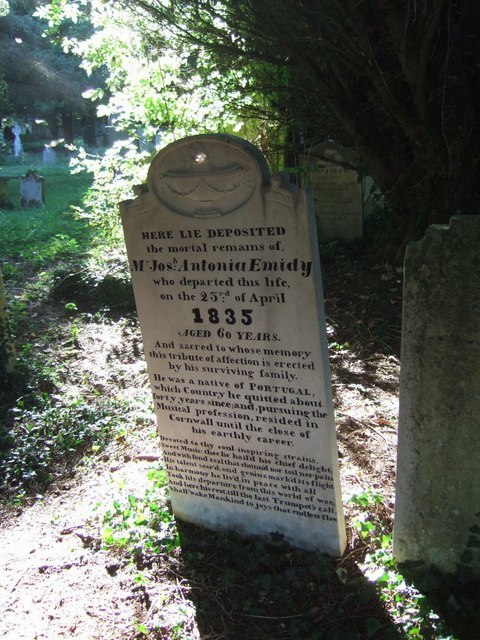
Read on after the cut:
Born somewhere around the year 1775 in Guinea and sold to Portuguese slavers as a child, Joseph was first taken to Brazil and then to Lisbon, Portugal. His owner recognized his musical talents and sought to cultivate them by providing Joseph with violin lessons from a professional musician. In a short three or four years, he was proficient enough to be playing in the second violin section of the pit orchestra for the Lisbon Opera. As someone who plays violin, I have to point out that violin has one of the toughest technical learning curves for a beginner, and to be playing professionally after only four years of serious lessons is impressive AF. He was still enslaved at this time, a fundamentally unjust situation to be in, but it seems at the least that he was allowed to flourish musically.
Enter Sir Edward Pellew, captain of the HMS Indefatigable. At the outset of the French Revolutionary Wars, the Indefatigable met up with the Tagus in the port of Lisbon and the officers went ashore to attend the opera before sailing into the Mediterranean. While there, Emidy seems to have caught Pellew's eye, perhaps because he may have been the only black violinist in the second violin section.
Pellew was aware that fighting the French was going to be a years-long campaign, and that his men would be badly in need of something to help bolster their morale along the way. Thus, by the end of the concert he had directed his men to press-gang Emidy as he left the theater to ensure that they would have a good fiddler to entertain them on ship during the war.
So when you hear about crews kidnapping musicians just so they could have entertainment on board this is the chief canonical example of just that. And as much as Admiral Pellew is admired for his bravery and cunning throughout his career, I can't help but see the flip side of that same mindset, the part that was okay with casually kidnapping someone from an orchestra on the coldly calculated basis that he would be the least likely to be missed.
For approximately four years Emidy served in the Royal Navy as the crew's chief source of onboard entertainment, playing the fiddle for them so they could dance in the evenings. He was not allowed shore leave from the HMS Indefatigable during the entirety of that time, because he was openly miserable about his situation and they feared he would abscond at the first opportunity. Who can blame him? At last, in 1799 Pellew received a commission for the Impetueux. Seeing that he couldn't keep his fiddler much longer, he discharged Emidy at the docks of his home base in Falmouth, Cornwall.
Emidy became an integral part of Cornwall's music circuit, performing regularly at concerts, theatres, and assemblies in various parts of the county, in addition to giving music lessons. He wrote numerous compositions which were held in high enough regard locally that a young James Silk Buckingham (who had taken music lessons with Emidy) was moved to travel to London in 1807 to present some of them to composer and impresario Johann Peter Salomon and his circle of music professionals. While Salomon was intrigued enough to offer Emidy a chance to come perform in London, others warned that even with his talent he would face an uphill battle against the racial prejudices of Londoners. In Cornwall, they argued, at least he was already well-known and well-liked. Ultimately, he remained in Cornwall.
This London meeting happened at about the same time that violin virtuoso George Bridgetower was elected to the Royal Society of Musicians and began working towards his bachelor's in music at Trinity Hall, Cambridge. Perhaps Bridgetower was given more of a pass by London society because he was mulatto, and because of his (somewhat alleged) noble lineage. Emidy was wholly of African descent and a former slave. His abilities had the potential to pose uncomfortable questions to an English society newly grappling with the issue of abolition (the first Abolition Act, which banned the direct purchase of enslaved people from Africa, was passed right in 1807). If nothing else, this experience made an impression on Buckingham, who went on to become an ardent abolitionist and social reformer. On Emidy, Buckingham wrote, "With the same advantages as were enjoyed by most of the great composers of Europe, this man might have become a Mendelssohn or Beethoven; but as it was, it was the achievement of extraordinary perfection, in spite of a thousand obstacles or difficulties."
Emidy lived the rest of his life in Cornwall, making his round of gigs, teaching, and composing. He married Jenefer Hutchins in 1802 and the couple went on to have at least six children (some sources say eight). He died in 1835 at the approximate age of 60, and is buried in Kenwyn Parish Church in Truro.
Several different sources attest to a variety of compositions that Emidy wrote over the course of his career, including chamber music, symphonies, a horn concerto, and several pieces for violin. None of these pieces have been found, at least not yet. It's not so unusual for the time to have no trace of a composer's works, as there was no concerted effort to preserve music that was going out of fashion (and musical tastes changed quite rapidly during this period). But it is extremely disappointing that someone didn't hold onto this music, especially since it seems to have garnered some high praise.
9 notes
·
View notes
Text
Oh yeah 1807, Napoleonic wars, Portugal monarchy on Brazil
2 notes
·
View notes
Photo

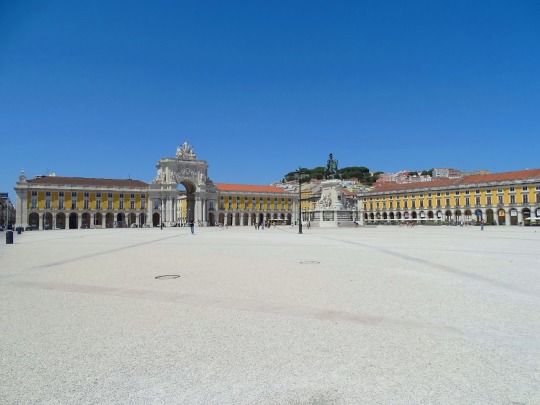


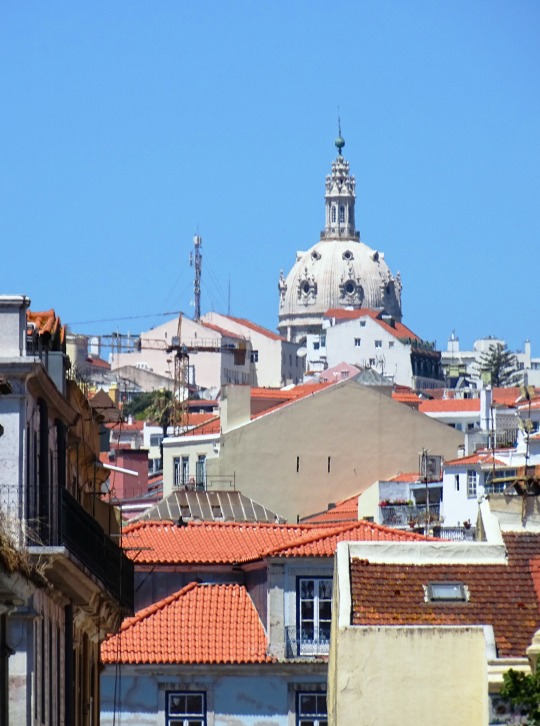

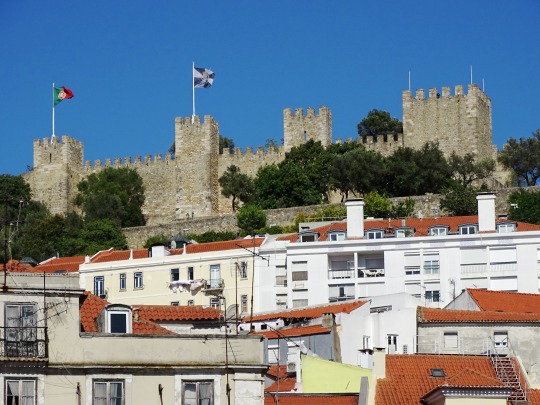



Jean-Andoche Junot's French army entered Lisbon on the November 30, 1807, whereupon the Portuguese royal family departed for Brazil where they would remain until 1821.
#Praça do Comércio#Jean-Andoche Junot#entered#Lisbon#Lisboa#travel#30 November 1807#215th anniversary#Portuguese history#Portugal#vacation#original photography#summer 2021#architecture#cityscape#Praça do Município#Rossio Square#Belém Tower#São Jorge Castle#Lisbon Cathedral#tourist attraction#landmark#Southern Europe
5 notes
·
View notes
Video
youtube
DeSantis said no one questioned slavery before Americans. See Van Jones ...
CHRONOLOGY-Who banned slavery when?
By Reuters Staff
3 MIN READ
(Reuters) - Britain marks 200 years on March 25 since it enacted a law banning the trans-Atlantic slave trade, although full abolition of slavery did not follow for another generation.
Following are some key dates in the trans-atlantic trade in slaves from Africa and its abolition.
1444 - First public sale of African slaves in Lagos, Portugal
1482 - Portuguese start building first permanent slave trading post at Elmina, Gold Coast, now Ghana
1510 - First slaves arrive in the Spanish colonies of South America, having travelled via Spain
1518 - First direct shipment of slaves from Africa to the Americas
1777 - State of Vermont, an independent Republic after the American Revolution, becomes first sovereign state to abolish slavery
1780s - Trans-Atlantic slave trade reaches peak
1787 - The Society for the Abolition of the Slave Trade founded in Britain by Granville Sharp and Thomas Clarkson
1792 - Denmark bans import of slaves to its West Indies colonies, although the law only took effect from 1803.
1807 - Britain passes Abolition of the Slave Trade Act, outlawing British Atlantic slave trade.
- United States passes legislation banning the slave trade, effective from start of 1808.
1811 - Spain abolishes slavery, including in its colonies, though Cuba rejects ban and continues to deal in slaves.
1813 - Sweden bans slave trading
1814 - Netherlands bans slave trading
1817 - France bans slave trading, but ban not effective until 1826
1833 - Britain passes Abolition of Slavery Act, ordering gradual abolition of slavery in all British colonies. Plantation owners in the West Indies receive 20 million pounds in compensation
- Great Britain and Spain sign a treaty prohibiting the slave trade
1819 - Portugal abolishes slave trade north of the equator
- Britain places a naval squadron off the West African coast to enforce the ban on slave trading
1823 - Britain’s Anti-Slavery Society formed. Members include William Wilberforce
1846 - Danish governor proclaims emancipation of slaves in Danish West Indies, abolishing slavery
1848 - France abolishes slavery
1851 - Brazil abolishes slave trading
1858 - Portugal abolishes slavery in its colonies, although all slaves are subject to a 20-year apprenticeship
1861 - Netherlands abolishes slavery in Dutch Caribbean colonies
1862 - U.S. President Abraham Lincoln proclaims emancipation of slaves with effect from January 1, 1863; 13th Amendment of U.S. Constitution follows in 1865 banning slavery
1886 - Slavery is abolished in Cuba
1888 - Brazil abolishes slavery
1926 - League of Nations adopts Slavery Convention abolishing slavery
1948 - United Nations General Assembly adopts Universal Declaration of Human Rights, including article stating “No one shall be held in slavery or servitude; slavery and the slave trade shall be prohibited in all their forms.”
4 notes
·
View notes
Photo








Royal Birthdays for today, June 6th:
Catherine Vasa, Countess of East Frisia, 1539
Joseph I, King of Portugal, 1714
Maria Theresa of Naples of Sicily, Holy Roman Empress and Empress of Austria, 1772
Thieu Tri, Emperor of Vietnam, 1807
Alexandra Feodorovna, Tsarina of Russia, 1872
Albert II, King of Belgium, 1932
Dom Luiz, Prince of Orléans-Braganza, 1938
Ashi Euphelma Choden Wangchuck, Princess of Bhutan, 1993
#catherine vasa#joseph i#Alexandra Feodorovna#maria theresa of naples and sicily#albert ii#dom luiz#Ashi Euphelma Choden Wangchuck#Thieu Tri#long live the queue#royal birthdays
18 notes
·
View notes